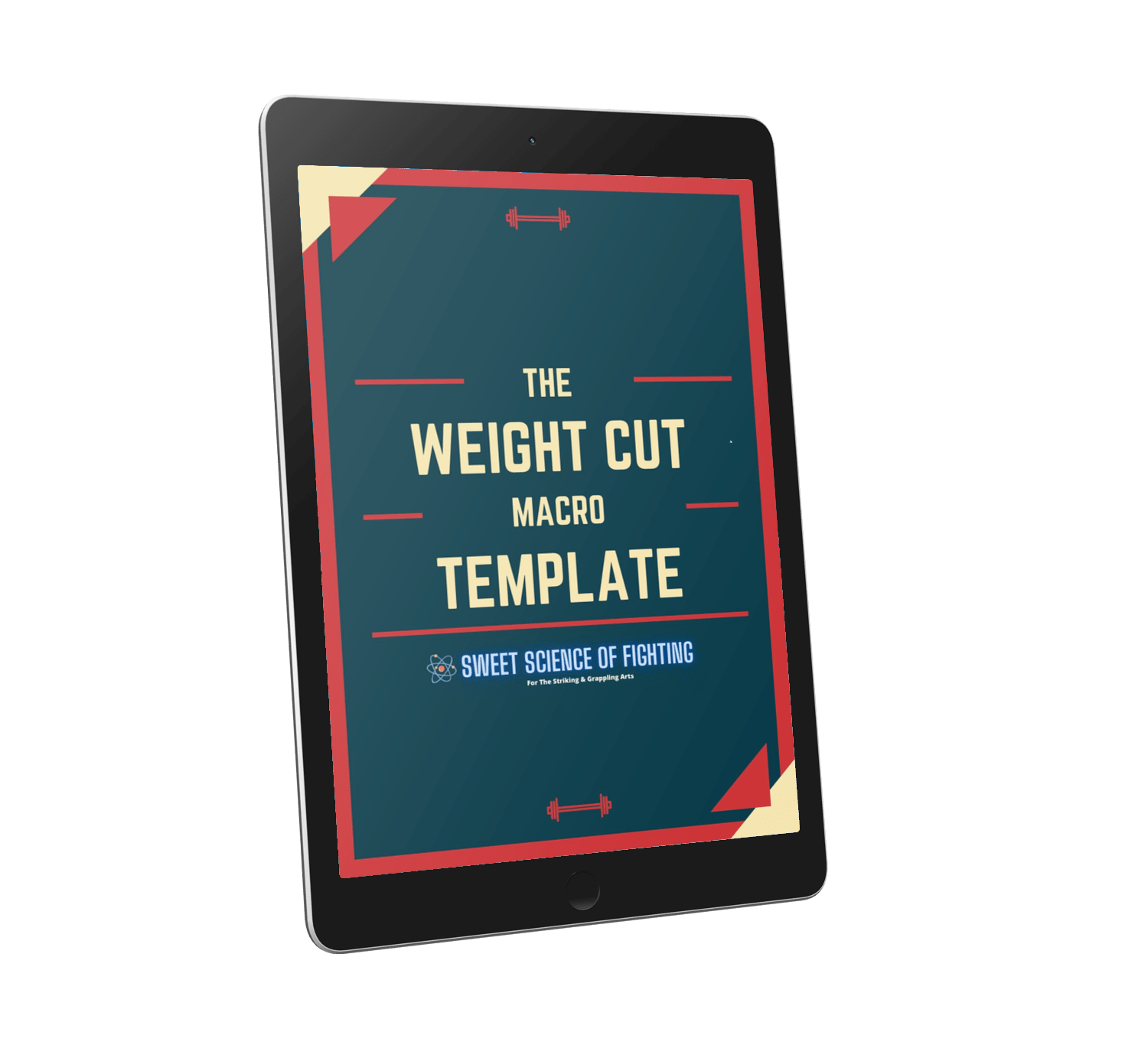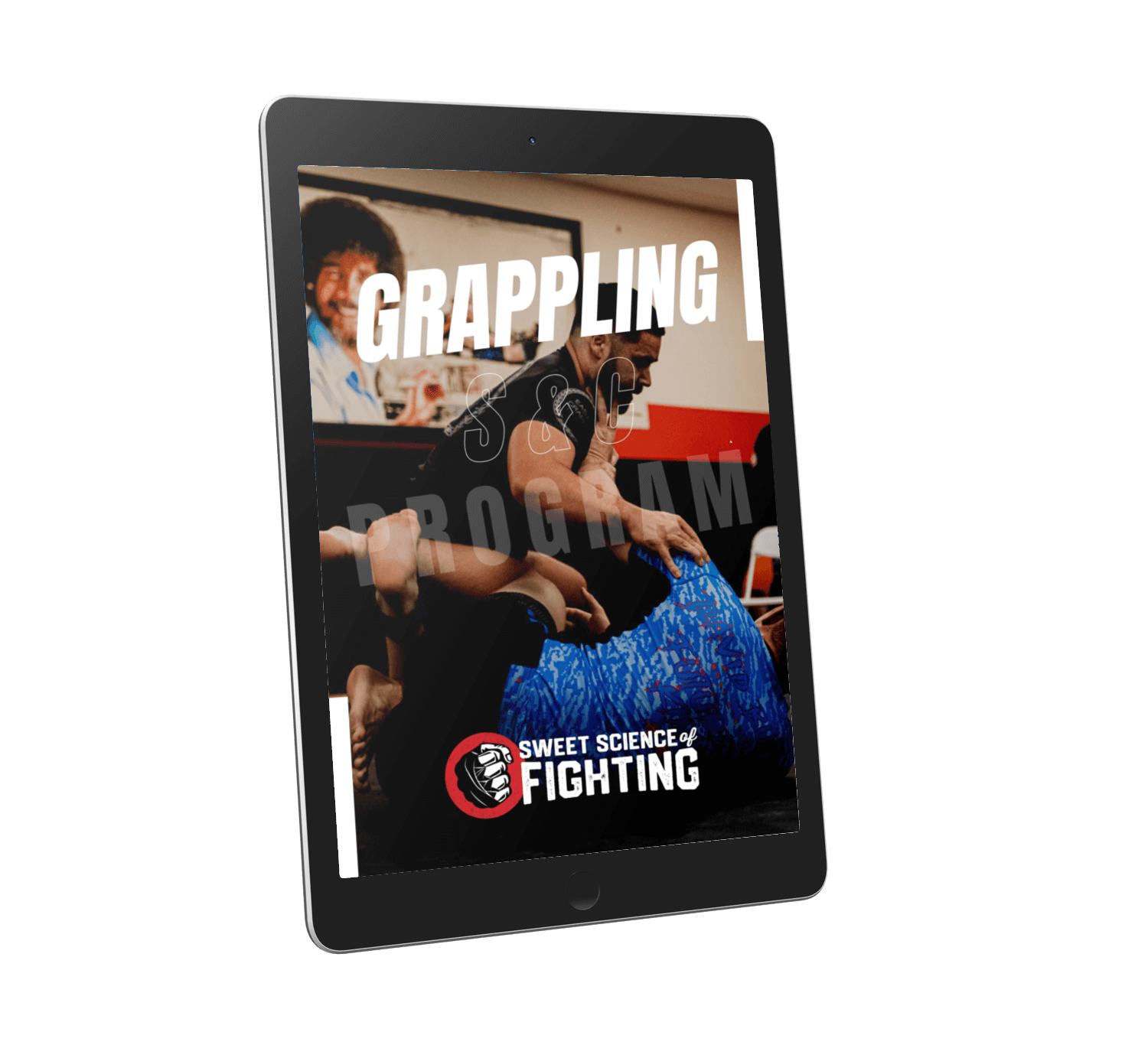We’ve all seen weight loss success stories from larger individuals joining a BJJ gym and slimming their way down to their new selves. I’ve seen it first-hand. It’s inspiring to see someone turning their life around through the sport of BJJ.
If so many people have lost weight through BJJ, it must be great for weight loss correct? Sure, BJJ plays a role in their weight loss success. But the real reason behind the weight loss isn’t purely from BJJ.
Is BJJ Good For Weight Loss?
BJJ is a great activity to facilitate weight loss. Just like any physical activity. However, the only way weight loss happens is through a calorie deficit. Meaning you are consuming less food and drink than you are expending throughout the day.

BJJ can help this process by expending energy allowing you to eat a similar amount of food to what you are currently eating assuming your body weight is stable.
So how do you know if you are eating enough to lose weight?
You can do some very simple calculations to find your daily caloric intake. Simply take your body weight in pounds, and multiply it by 14-15.
For example's sake, let's take a 200 lb BJJ practitioner. An estimated daily caloric intake for weight loss would be somewhere between 2800-3000 calories per day.
As this is an estimation, it's important to weigh yourself in the morning daily to track your body weight changes to see if it's falling too fast or potentially gaining. Generally, when starting to track your calories or macronutrients, your body weight will drop 1-2 lbs instantly before leveling off.
Now we need to calculate the breakdown of macronutrients within this calorie range. Macronutrients are protein, carbohydrates, and fat.
The breakdown of macronutrients will dictate the quality of bodyweight that you retain and lose. A diet low in protein when losing weight will cause a greater loss in muscle mass than a diet high in protein.

FREE Weight Cut Template That Automatically Calculates Your Macros
That is why we start with protein for macronutrient calculations. Anywhere from 1-1.2g per pound of body weight is more than enough protein.
For our 200 lb BJJ practitioner, that would be 200-240g of protein. That would be 800-960 calories.
Fat intake is next. This is mainly going to be by personal preference. Do you enjoy eating fattier foods? Don't enjoy eating a lot of carbohydrates? You may have a higher intake of fat and a lower intake of carbohydrates.
However, if you are training regularly with BJJ and weight training each week, I would advise keeping the fat on the lower side and carbohydrates on the higher side as being low on carbohydrates when you are consistently active in high-intensity sport will lead to fatigue, low energy, and burn out.
25-30% of your daily caloric intake is a good guideline for fat intake. In our example, taking 3000 calories as the daily intake, this would be 750-900 calories from fat translating to 83-100g per day.
The rest of the calories are made up of carbohydrates. Here is how the breakdown would look for a 3000 caloric intake.
3000 calories
Protein – 200 g (800 cal)
Carbohydrates – 362 g (1450 cal)
Fat – 83 g (750 cal)
Trying to hit each number exactly is a pain. That is why we can create a range to work with so you’re not chasing each grain of rice on the plate.
Protein = ± 10 g
Carbohydrates = ± 10 g
Fat = ± 5 g
How Many Calories Do You Burn In An Hour Of BJJ?

Calculating the calories burned from an hour of BJJ is impossible to do accurately. The numbers you’ll find through your Google searches are pulled out of thin air.
This is not a number or problem that you should be worrying about or putting any extra thought into. It just does not matter.
What matters is the consistency of your training and your diet while you monitor changes in your weight and body composition.
Will BJJ Get You Ripped?
BJJ itself will not get you ripped. Being ripped is having low body fat while maintaining a relatively high level of muscle mass.
Unfortunately, BJJ isn't an activity that will allow you to maintain or grow muscle mass meaning you will have to supplement with strength training alongside BJJ to get ripped.
Specific BJJ strength training programs such as Dominate The Mats will make sure you get stronger and maintain muscle mass while you lose weight through dietary adjustments.
Further, any of the programs purchased from Sweet Science of Fighting comes with a free bonus book detailing nutrition for combat sports athletes.
Muay Thai Or BJJ For Weight Loss
Both Muay Thai and BJJ are good options for weight loss. Any physical activity that you enjoy will ensure that you are training regularly and consistently. These are some of the most important aspects of weight loss.
BJJ Diet To Lose Weight
Let’s take our 200 lb BJJ practitioner example above and turn it into a full diet to lose weight by providing a full day of eating. All of these values have been taken from MyFitnessPal.
Breakfast
Size 7 Eggs x4
Multigrain Toast x2
Apple
Snack (Post-workout)
Cereal (62g, 2 servings)
Low Fat Milk (400ml)
Protein Powder (1 scoop)
Pineapple (100g)
Lunch
Chicken Breast (100g cooked)
Jasmine Rice (250g cooked)
Avocado (50g)
Extra Virgin Olive Oil (1 Tbsp)
Snack
Extra Virgin Olive Oil (1 Tbsp)
Jasmine Rice (250g Cooked)
Canned Tuna (120g)
Dinner
Grilled Sirloin Steak (100g cooked)
Russett Potato Mashed (300g)
Total macros
Protein = 188 g
Carbohydrates = 368 g
Fat = 86 g
"A really massive part of the success was the weight cut."
"Dr. James Morehen knew my body better than me. My performances were staying, my training in the gym, my sleep pattern was good. I wasn't going to bed starving, I was getting good rest in and sleep in." - Rocky Fielding (WBA Super Middleweight Champion)




